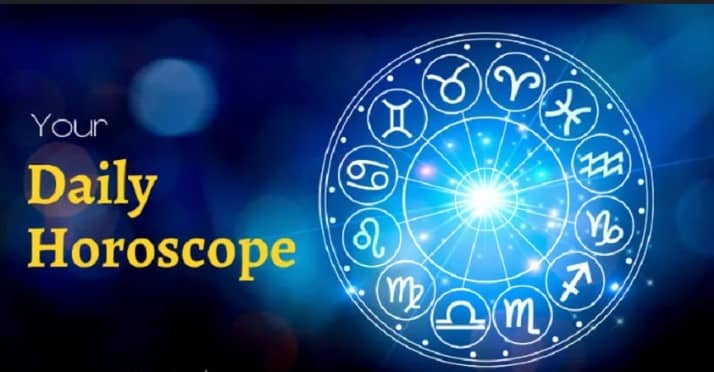How Horoscopes Work-Science or Spirituality?
Introduction
Horoscopes have fascinated people for centuries, offering insight into everything from personality traits to future events. Found in newspapers, apps, and spiritual blogs alike, HCP are based on the position of celestial bodies at the time of a person’s birth. But what’s really behind these cosmic predictions? Are HCP rooted in ancient wisdom and spiritual intuition, or are they simply clever illusions dressed in mystical language?
In today’s world, where science and spirituality often walk separate paths, horoscopes sit at a curious crossroads. Some view them as a fun and harmless way to gain self-awareness, while others dismiss them as pseudoscience lacking evidence. So, what’s the truth?
The Origins of Horoscopes
The practice of reading the stars dates back thousands of years, with its roots in ancient civilizations like Babylon, Egypt, and Greece. These early cultures believed that the movements of celestial bodies directly influenced human life and natural events. Astrology was once considered a scholarly discipline, closely tied to astronomy. Over time, it evolved into the horoscope systems we know today, blending myth, symbolism, and observation into a framework for understanding personality and destiny.
How Horoscopes Are Created
Horoscopes are crafted using a person’s birth chart, also known as a natal chart, which maps the positions of the sun, moon, and planets at the exact time and place of birth. Astrologers interpret these placements based on zodiac signs and astrological houses to make predictions or offer insights. Daily or weekly HCP are typically based on the movement of planets—especially the moon and Mercury—relative to each zodiac sign, aiming to forecast moods, opportunities, and challenges.
The Spiritual perspective
From a spiritual standpoint, horoscopes are more than predictions—they’re seen as tools for self-awareness and inner growth. Many believe the universe is interconnected, and the positions of celestial bodies reflect energies that influence human emotions, decisions, and life paths. Astrology, in this view, offers guidance rather than absolute answers, helping individuals tune into their intuition, navigate challenges, and align with their higher purpose. For spiritual seekers, HCP serve as a mirror of the soul’s journey.
The Scientific Viewpoint
From a scientific perspective, HCP are often viewed with skepticism. Critics argue that astrology lacks empirical evidence and cannot be tested using scientific methods. Numerous studies have shown that horoscopes are too general to be accurate or reliable. Scientists point to the Barnum effect—our tendency to accept vague, flattering statements as personally meaningful—as a key reason why people believe in astrology. Despite its popularity, modern science generally classifies HCP as a form of pseudoscience.
Psychological Aspects and the Placebo Effect
Horoscopes often resonate with readers due to psychological factors rather than astrological accuracy. The Barnum effect plays a major role—people tend to accept vague, positive descriptions as uniquely true about themselves. Additionally, the placebo effect can influence emotions and decisions, as simply believing in a horoscope’s message can boost confidence or provide comfort. In this way, HCP may offer psychological support, even if their foundations aren’t scientifically proven.
Horoscopes in Modern Culture
In today’s digital age, horoscopes have found new life on social media, apps, and lifestyle websites. From daily zodiac memes to full moon rituals, astrology has become a cultural trend embraced by younger generations. Many people turn to HCP for entertainment, guidance, or a sense of connection in uncertain times. Despite criticism, astrology remains widely popular—blending spirituality, personality exploration, and self-care.
Finding Balance: Science and Spirituality
While science and spirituality may seem at odds, many people find value in HCP by blending both perspectives. Even without scientific proof, HCP can serve as reflective tools, offering insight and emotional clarity. For some, astrology is a spiritual practice; for others, it’s simply a source of comfort or curiosity. Striking a balance between critical thinking and open-mindedness allows individuals to explore horoscopes without relying on them as absolute truth.
Conclusion
Horoscopes continue to intrigue people around the world, bridging the gap between ancient wisdom and modern-day curiosity. While some view them as a fun, spiritual guide, others remain skeptical, pointing to the lack of scientific evidence. Whether used for self-reflection, guidance, or entertainment, HCP hold a unique place in human culture. The balance between science and spirituality allows individuals to approach astrology with an open mind, considering it as one of many tools for personal growth or introspection. Whether you’re a firm believer or a curious skeptic,HCP remain a fascinating way to explore our connection to the universe.
You Can Also Read: Photosynthesis Powers Our World
FAQs
Are horoscopes accurate?
HCP can provide general insights, but their accuracy is debated. They rely on interpretations, which may not apply to everyone.
How are horoscopes created?
HCP are based on the position of celestial bodies at the time of your birth, including the sun, moon, and planets.
Why do people believe in horoscopes?
People often turn to HCP for guidance, self-reflection, or comfort, especially when facing uncertainty or change.
Can horoscopes predict the future?
While horoscopes may offer forecasts, their predictions are based on astrological interpretations and are not scientifically proven to predict specific events.
Are horoscopes scientifically proven?
No, horoscopes lack empirical evidence and are generally considered pseudoscience by the scientific community.






2 thoughts on “How Horoscopes Work-Science or Spirituality?”